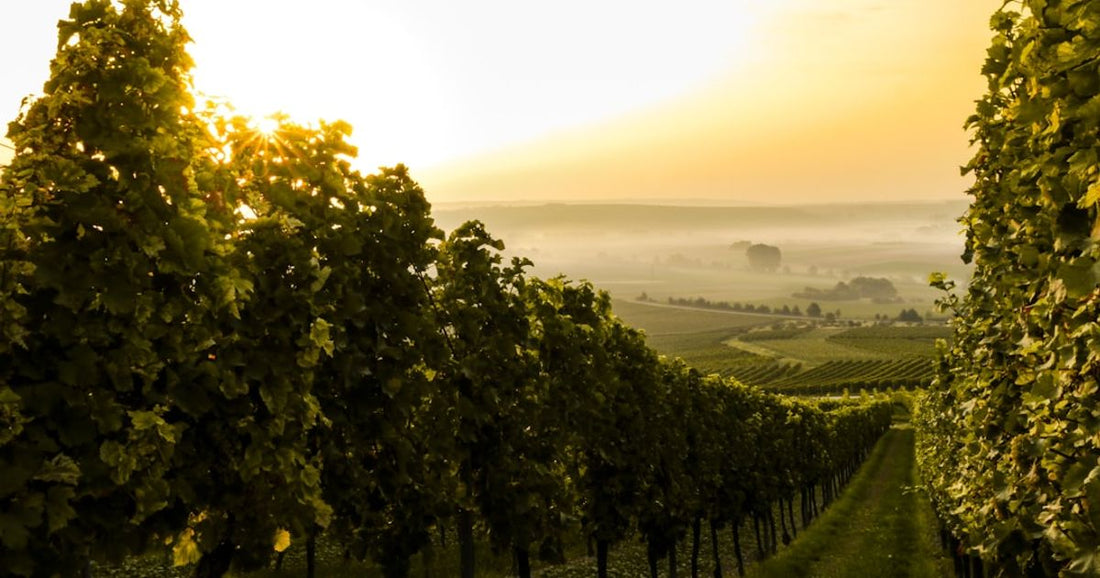
The Impact of Climate on Rare Wine Valuation
Share
In the intricate world of fine wines, the influence of climate extends far beyond the vineyard, shaping not only the character and quality of each vintage but also its rarity and market value. As global climate patterns shift, the wine industry faces unprecedented challenges and opportunities, particularly for collectors of rare wines. Understanding how climate change impacts the rarity and valuation of fine wines is crucial for collectors aiming to protect their investments and capitalize on emerging trends. This article delves into the multifaceted relationship between climate and the wine market, offering insights into safeguarding and enhancing the value of wine collections in a changing world.
Key Takeaways
- Climate change is significantly altering the landscape of wine production, impacting the rarity and value of fine wines.
- Temperature fluctuations, extreme weather events, and changing precipitation patterns affect the quality, quantity, and characteristics of wine vintages.
- Regions traditionally known for wine production may face challenges, while new regions emerge as promising vineyard locations.
- Collectors should stay informed about climate trends and adapt their investment strategies to include wines from emerging regions and vintages likely to become rare.
- Sustainable and adaptive vineyard management practices are becoming increasingly important in maintaining the quality and value of fine wines.
The Influence of Climate on Wine Production
Temperature and Terroir
The concept of terroir, the unique combination of climate, soil, and topography that influences the flavor and quality of wine, is at the heart of winemaking. Temperature plays a critical role in defining terroir. Warmer climates tend to produce wines with higher alcohol content and riper fruit flavors, while cooler climates yield wines with higher acidity and more subtle flavors. As global temperatures rise, the characteristics of wines from established regions are shifting, potentially altering their market perception and value.
Climate change is not uniform; it affects different regions in various ways. Some areas may experience warmer temperatures conducive to extending the growing season, while others may face increased heat stress, adversely affecting grape quality. These changes can lead to variations in vintage quality and the emergence of new wine regions, impacting the rarity and valuation of wines.
Precipitation Patterns and Water Management
Changes in precipitation patterns, including both droughts and excessive rainfall, pose significant challenges to vineyard management. Water availability affects vine health, grape yield, and quality, influencing the wine's market value. Drought conditions can lead to smaller harvests of higher-quality grapes, potentially increasing the rarity and value of a vintage. Conversely, excessive rainfall can dilute grape flavors and increase the risk of disease, negatively impacting wine quality.
Adaptive water management practices, such as efficient irrigation systems and drought-resistant grape varieties, are becoming essential for maintaining vineyard productivity and wine quality in the face of changing precipitation patterns. These practices not only contribute to sustainability but also help preserve the value of wine investments in a changing climate.
The Economic Impact of Climate Change on Wine Markets
Shifting Production Regions
As traditional wine-producing regions grapple with the effects of climate change, new regions are emerging as potential hotspots for high-quality wine production. This geographical shift can lead to changes in the rarity and value of wines from established regions while opening opportunities for wines from emerging regions to gain prominence in the market.
For collectors, this shift underscores the importance of staying informed about global wine production trends and being open to exploring wines from lesser-known regions. Diversifying collections to include wines from emerging regions can mitigate risks associated with climate change and capitalize on the potential for increased rarity and value of these wines.
Vintage Variation and Collectibility
Climate change increases the variability of weather conditions from year to year, leading to greater variation in vintage quality. Exceptional vintages that stand out for their quality and character may become increasingly rare, enhancing their collectibility and value.
Collectors should pay close attention to vintage reports and climate data to identify vintages that are likely to become highly sought after due to their exceptional quality or unique characteristics. Investing in such vintages can be a strategic move to enhance the rarity and value of a wine collection.
Adapting to Climate Change: Strategies for Collectors
Investing in Sustainable and Resilient Wines
Sustainable vineyard practices and resilience to climate change are becoming important factors in the long-term value of wines. Wineries that adopt sustainable practices, such as organic farming, water conservation, and carbon footprint reduction, are not only contributing to environmental preservation but also enhancing the appeal of their wines to environmentally conscious consumers.
For collectors, investing in wines from wineries committed to sustainability can be a way to support environmentally responsible practices while potentially increasing the future value of their collections. Wines from such wineries may become more desirable as consumers increasingly prioritize sustainability in their purchasing decisions.
Diversification and Research
Diversifying a wine collection to include a broad range of regions, varieties, and vintages is a prudent strategy to mitigate risks associated with climate change. Researching emerging wine regions, understanding the impact of climate on different grape varieties, and staying informed about global climate trends can help collectors make informed decisions about which wines to include in their collections.
Networking with other collectors, attending wine tastings, and participating in wine forums can provide valuable insights and opportunities to discover rare and valuable wines. Staying engaged with the wine community can enhance a collector's ability to adapt to the changing landscape of wine production and valuation in a warming world.
In conclusion, climate change is reshaping the world of fine wines, influencing the rarity, quality, and value of vintages. For collectors, understanding the impact of climate on wine production and markets is essential for safeguarding and enhancing their investments. By adopting adaptive strategies, such as diversifying collections, investing in sustainable wines, and staying informed about global climate trends, collectors can navigate the challenges and opportunities presented by a changing climate. As the wine industry continues to evolve in response to environmental changes, collectors who are proactive and informed will be best positioned to enjoy the enduring pleasures and rewards of fine wine collecting.



